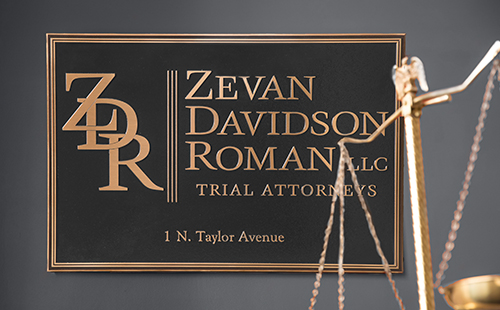Types of Birth Injuries We Cover
When you’re expecting, it can be hard to know what lies ahead. Pregnancy and delivery can be full of challenges — you should be aware of possible complications before they arise. Generally, there are two primary types of birth injuries: nerve injuries and brain damage. At Zevan Davidson Roman, we often take on nerve injury and brain damage cases, and we’re prepared to walk you through what each means for your child.
Nerve Injuries
Often caused by improper birthing techniques, nerve injuries leave newborns with either weakness or paralysis from damaged or severed nerves. These types of birth injuries may resolve themselves in the weeks following delivery, or they may lead to lifelong complications. A few common nerve injuries include:
- Erb’s palsy. Caused by a damaged brachial plexus nerve, those with Erb’s palsy may experience weakness, paralysis and a lack of sensation in their arm.
- Spinal cord injuries. During birth, nerves in the spinal cord may become stretched, compressed or even severed. Spinal cord injuries can affect a number of appendages, and often lead to lifelong paralysis for a child.
- Damage to cranial nerves. Located in the brain stem, cranial nerves are often damaged or compressed during childbirth, resulting in multiple possibilities. On one hand, damage to the laryngeal nerve may temporarily affect a child’s ability to breathe, swallow or talk. On the other hand, the facial nerve may be permanently damaged by forceps, leading to asymmetrical movement in the face or a complete lack of expression on the affected side of the face.
Brain Damage
Of the types of birth injuries, brain damage is the most dangerous. Brain damage is caused by oxygen deprivation around the time of birth or external trauma. We often see damage resulting from umbilical cord problems, placenta detachment, maternal health complications or delivery trauma. Doctors may inadvertently cause these injuries through a failure to diagnose, treat or monitor during pregnancy or pure negligence during delivery. Brain damage has serious implications including impaired mobility, developmental delays and other conditions such as:
- Cerebral palsy. Cerebral palsy is caused by a lack of oxygen to the brain. It may lead to impaired motor skills, low muscle tone, learning disabilities or speech difficulties. This condition is highly variable but it lasts a lifetime.
- Hypoxic ischemic encephalopathy. This condition is one of the most dangerous birth injuries. HIE occurs when a child’s brain is deprived of blood and oxygen for an extended period of time, resulting in hypoxia, or cell death. This results in permanent brain damage or even death.
- Hydrocephalus. A severely dangerous condition, hydrocephalus occurs when cerebrospinal fluid (CSF) becomes backlogged, causing it to flood the ventricle cavities of the brain. This condition is commonly the result of external trauma during childbirth, such as excessive pressure or force being applied to the baby’s head. Hydrocephalus may result in long-term brain damage for your child.
Tackling All Types of Birth Injuries
Regardless of the severity or types of birth injuries, you should immediately seek medical attention if you suspect your child has sustained one. Our attorneys are ready to take the lead once you feel ready to go one step further — contact Zevan Davidson Roman for a free consultation today.


